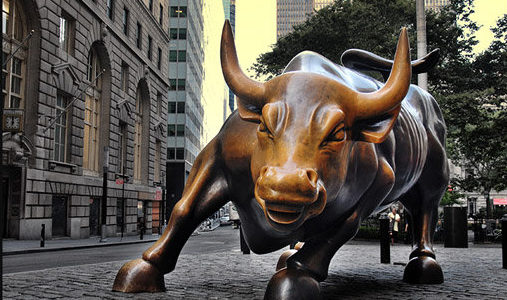Wow, what a year is the first thing that comes to mind. It’s almost hard to imagine that 12 months ago life was without Coronavirus, the election hadn’t really begun and the economy was continuing to run at a historical rate. Fast-forward to January 1, 2021 and it feels like the world took a collective breath as we sighed “Whew, glad that’s over.” While 2020 is definitely in the rear view mirror, the effects of a global pandemic are still being felt.
2020 began with an incredible start. Through February the global financial markets were hitting all time highs and economies everywhere were running at an incredible pace. Then as we all experienced in March, we saw something we never thought possible. In over 20 years investing I have never seen something so strong come to such a quick stop. The S&P 500 dropped over 30% from February 10th to March 16th, just over 4 weeks time. To give some historical context the 2008 financial crisis from high to low took over 11 months. The speed of the decline in 2020 was unlike anything we have ever experienced.
Despite this rapid decline and massive economic impact if you were invested in the market you had a good year. March was obviously a very difficult month, but government responses around the globe were not only swift but large in scale. The US Government pumped trillions of dollars into the economy, the Fed provided massive liquidity to the capital markets and because of moves like these the US economy was brought out of what would have been a prolonged and crushing downturn. In Q2 we saw GDP drop over 32%. This was more than three times larger than the previous record of quarterly contraction. As the government and Fed intervened we saw Q3 expand at over 33%. Q4 again provided growth at 6%. All total the US economy did contract last year, but everything that transpired, it could have been much worse. With stay-in-place orders in effect in March and massive uncertainty, we easily could have faced a prolonged recession or even depression. We are obviously very pleased with the outcome thus far.
So what to expect in 2021 and beyond?
As many of you have heard us jest “our crystal ball stopped working about 15 years ago,” and we obviously can’t provide an exact picture of what things will be this year. There are a number of things we do feel good about.
First, we feel that the companies that come out of the pandemic will be stronger and better prepared for any future type event that may be similar. While we don’t expect that to happen, it is reassuring to know that companies will have gone through this and better know how to manage it.
Second, the companies that did well last year will continue to do so in 2021. Companies that saw little interruptions in their business as employees worked from home, others that provided infrastructure for remote working, all saw large increases to their bottom lines. We feel this will continue into 2021 and beyond and may be a large part of the “new normal” going forward.
Third, companies that relied heavily on in-person interaction or travel had a brutal year in 2020. This will continue into early 2021 and will be one of the limiting factors of our economy early in the year. We do feel however these businesses are poised to grow significantly as economies open back up. We expect to see restaurants return to more normal operations, travel to increase and things like concerts and sporting events to return. Companies that service these industries will definitely benefit as things reopen.
Fourth, opening back can only happen as vaccines are distributed. Currently the US is on pace to reach the new administrations goal of 100 million doses in the first 100 days. This is great news. As the vaccine to Covid 19 gets administered globally we anticipate this will help industries like travel, entertainment and the like, return to 2019 levels. The vaccine should continue to be a massive contributor towards growth as the year moves on.
Fifth, low interest rates. The Fed has said they will continue to maintain low interest rates for the foreseeable future. This benefits industries across the economy and will be another significant factor to economic growth in 2021. We are glad to see the Fed maintaining this policy.
Sixth and finally, we have a new administration in Washington. With Democrats now controlling all three branches of government we expect to see a bent towards legislation favored by the Democrats. However, with a razor thin margin in the Senate we don’t expect to see sweeping legislative changes. In the 2022 mid-term elections there are a greater number of Democratic senators up for reelection and many of those senators come from either “conservative” or moderate states. This will probably influence voting until those elections. We are hopeful the rhetoric out of DC will be more along the lines of compromise going forward.
2021 will be an interesting year, most likely the tale of two halves. The first half will be much like 2020, lock downs still in place in many cities and states, limited gatherings and minimal travel. The second half should look much closer to the “days of yesteryear” in our opinion. The vaccine should be largely distributed by summer. This should allow most everything to resume and we are cautiously optimistic that by late summer/early fall life will look much more like it did in 2019 than in 2020. There are of course things that can disrupt this and we will continue to plan, react and reallocate accordingly. We continue to look for diversification strategies that protect your capital and find high quality companies that can weather storms and perform well over the long haul.
Thank you for your continued trust in us and allowing us to work with you through an unprecedented year. We know it wasn’t easy, but we have all come out stronger knowing we can handle what is hopefully the greatest collective challenge of our lives. Stay Safe. Stay Strong.
Bryan, Thane, Gary and the Cascade Team



